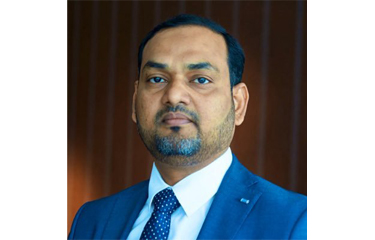Saudi Arabia is pushing to increase its seafood production to 600,000 metric tons in the next 10 years, an initiative that has encouraged a surge in private sector investments in the aquaculture sector’s pre-harvest, production, and post-harvest segments.
Dubai, United Arab Emirates-based Aqua Bridge Farms Co. has become the latest private sector investor to achieve a milestone in Saudi Arabia’s seafood industry, after making a successful entry into commercial production of juveniles of European sea bream (Sparus aurata) and European sea bass (Dicentrarchus labrax) slightly more than a year after the company commenced expansion of the project.
The Aqua Bridge project, which has a production capacity of three million juveniles – its eventual target is 10 million juveniles annually – is a key achievement in Saudi Arabia’s overall SAR 17.5 billion (USD 4.7 billion, EUR 4.1 billion) investment projects for the aquaculture sector, according to the Saudi General Investment Authority, the country’s investment promotion agency.
The Aqua Bridge hatchery project, located in Al-Lith, Makkah Province, is a boost to the projected investment of SAR 15 billion (USD 4 billion, EUR 3.5 billion) that would include hatcheries, inland fish RAS farming, coastal shrimp farming, and marine cage farming.
“European sea bream and European sea bass are some of the most popular species for aquaculture projects in the region and the localized production of their fingerlings further enhances their appeal for production in the Saudi aquaculture sphere,” the company said in a statement.
According to Aqua Bridge, the new hatchery will produce quality juveniles that “have been vouched as giving substantially better results in terms of growth rate and survival as compared to juveniles that were previously imported.”
Both Aqua Bridge and Saudi Arabia’s Ministry of Environment Water and Agriculture believe the country is inching closer to achieving the 100,000 tons of fish production by the end of 2020.
Despite the COVID-19 pandemic, Aqua Bridge has already produced and delivered to customers more than five million juveniles from the hatchery, which is also the first Best Aquaculture Practices-certified marine finfish hatchery in the Gulf Cooperation Council region.
Moreover, Saudi Arabia’s advantage of having access to the Red Sea – described by the company as having “favorable environmental conditions and an advantageous geographical location” – makes the aquaculture production targets feasible, according to the Netherlands’ Ministry of Ministry of Agriculture, Nature, and Food Quality, which has an interest in aquaculture projects in the Middle East.
“There is great room for further growth in production volumes and in supplying the ever-increasing demand for seafood in the national and international markets,” the ministry said in a press release.
For Saudi Arabia’s Ministry of Environment Water and Agriculture, boosting aquaculture production over the next 10 years under the country’s Vision 2030 requires smart and sustainable exploitation of available natural and environmental resources. The country plans on tackling this by implementing a raft of measures, such as the simplification of the fishing industry’s investment license application processes, and the shortening of the period within which the permits should be issued so as to attract more private investors into the aquaculture sector.
In addition, Saudi Arabia is researching potential marine aquaculture development locations with suitable environmental and oceanographic condition to support large-scale fish-farming. The country has already mapped out 15 possible locations for both public- and private-sector aquaculture investments.
Other measures the country is pursuing to boost its aquaculture sector include implementation of a national biosecurity surveillance program, enforcement of standardized industry procedures, and the use of a Saudi Arabia Mark of Aquaculture Quality (SAQAMA) aquaculture product certification and label, which the government said is “based on internationally acknowledged guidelines and responsible aquaculture practice requirements.”
“The objective is that ultimately all Saudi Arabia national aquaculture products will be certified and marketed with the SAMAQ label indicating their local origin and assuring of their quality and freshness,” the ministry said.
Companies such as Aqua Bridge are banking on the predictions of a thriving seafood market in Saudi Arabia in the medium- and long-term to inject additional capital into their aquaculture projects in this desert country of 34 million people, according to CEO Mohammed Tabish. An anticipated 7 to 8 percent increase in domestic seafood consumption, driven by an increasing population keen on pursuing healthy lifestyles and diets, remains a key driving force of Saudi Arabia’s seafood market going into the future, Tabish said. And that growth is occurring on a regional level as well – the Saudi Arabia Investment Authority estimates the GCC will have to import 770,000 tons of seafood annually by 2030 to meet the growing demand.
Apart from the steadily growing local consumption, the Saudi Arabia Investment Authority said the country “is strategically located to become a quality seafood exporter serving the GCC market as well as the Asian and European markets.”
Furthermore, the government is at the center of growing the seafood market, with an allocation of SAR 1.3 billion (USD 347 million, EUR 307 million) by the first quarter of 2019 at a time the aquaculture sector had reported a 12 percent growth in the previous 12 years. In April 2019, Saudi Arabia’s Ministry of Environment, Water, and Agriculture announced it will invest SAR 1.3 billion (USD 347 million, EUR 309.8 million) into aquaculture projects, and Saudi Arabia’s Agricultural Development Fund is funding 70 percent of the total cost of new aquaculture projects that gain support through the government’s Fish Farming Support Program.
Photo courtesy of Aqua Bridge







